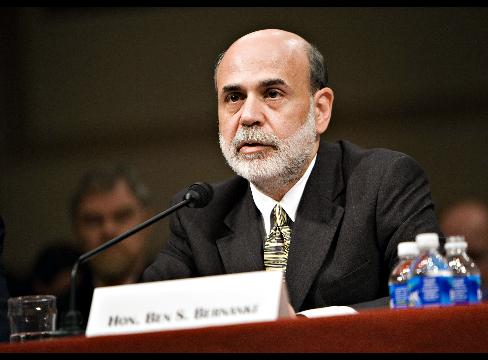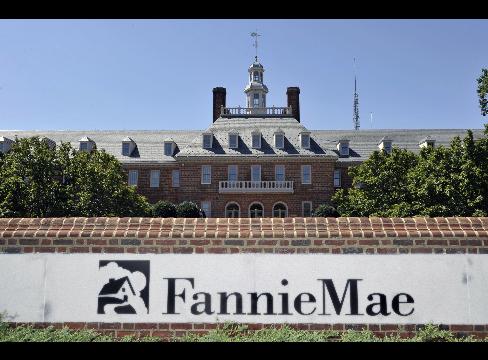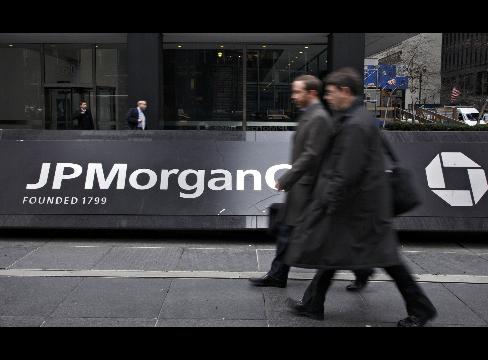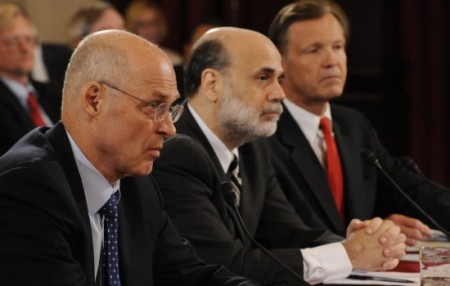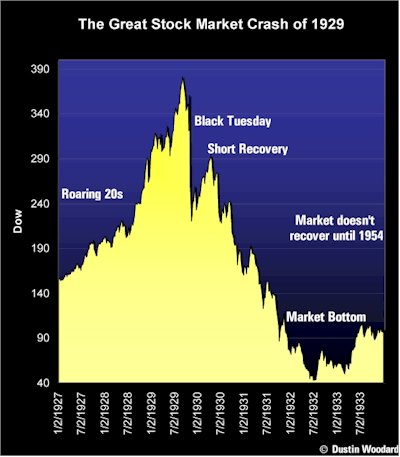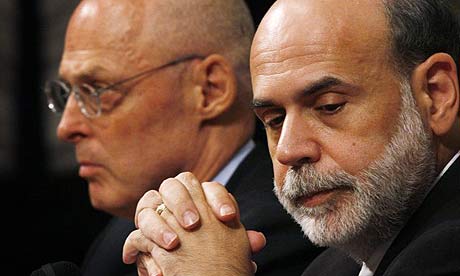
Federal Reserve chairman Ben Bernanke folds his hands while testifying with US Treasury secretary Henry Paulson before the Senate banking committee on Tuesday. Photograph: Charles Dharapak/AP
The proposed $700bn bailout of US financial markets faced harsh criticism in Congress today, with liberals and conservatives both sceptical that granting the Bush administration power to buy up risky mortgages would avert further economic crisis.
Yet despite the wariness from the Senate banking committee, where Henry Paulson and Ben Bernanke appeared today, the financial rescue seems poised to win approval by next week at the latest.
“This is not something I wanted to ask for,” the US treasury secretary said, assuring senators that “I feel your frustrations” and “I’m angry” at the prospect of Wall Street firms getting saved by the government.
But Paulson and Bernanke did ask for broad latitude to decide which toxic assets would win a purchase by the government. Senators of both parties did not attempt to hide their anger at the request, citing the Bush administration’s previous assurances of market stability.
“We have been given no credible assurances that this plan will work,” Richard Shelby, the senior Republican on the banking panel, said. “Congress does not have time to determine if there are better alternatives.”
The committee’s Democratic chairman, Chris Dodd, questioned Paulson’s request for immunity from any legal or government review of his actions during the bailout process.
“After reading this proposal, I can only conclude that it is not just our economy that is at risk,” Dodd told the treasury secretary, “but our constitution as well.”
Read moreDemocrats and Republicans alike sceptical of Bush bailout plan
